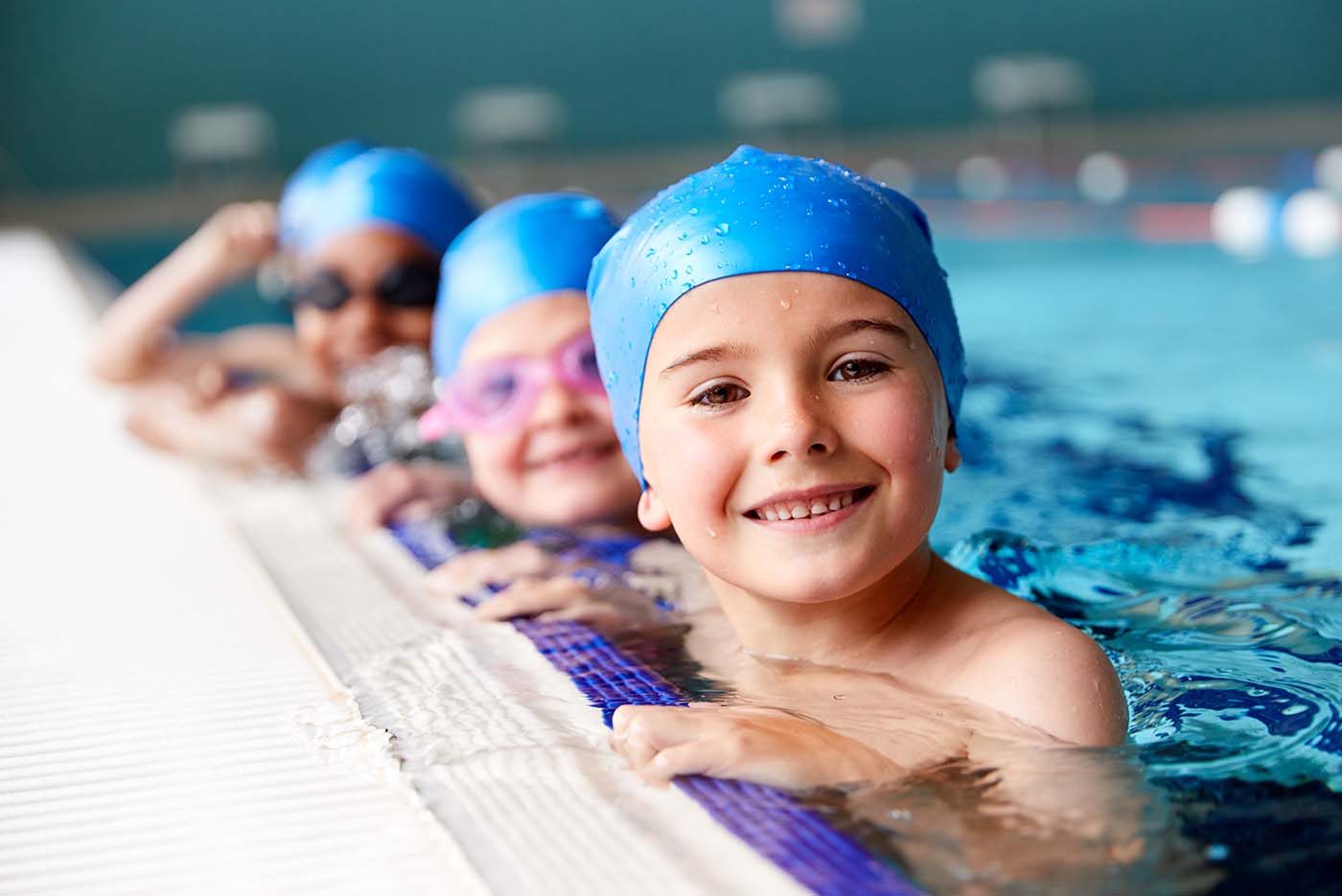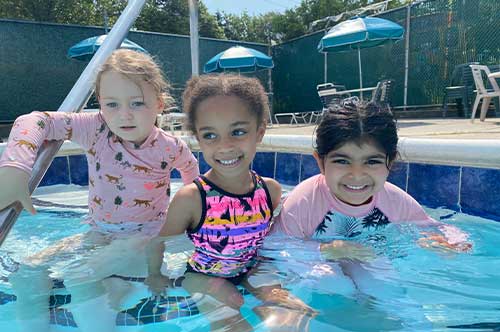Swimming is a great activity for children of all ages, providing countless physical and mental benefits. Not only does swimming help develop gross motor skills such as balance and coordination, but it can also give any young child the opportunity to strengthen their cardiovascular health and immunity. With proper supervision, kids are able to explore the pool with confidence — which leads to more physical security, independence, and self-esteem! Although learning how to swim may feel daunting at first glance, once your kiddo gets started they will enjoy plenty of fun in this active pursuit. So if you’re wondering why swimming is so beneficial for your little one’s development — read on!
Introducing swimming to young kids – an overview of the benefits
Swimming is an excellent activity for young children due to its numerous benefits for their mind and body. It helps develop their motor skills, strengthens their muscles, and promotes cardiovascular health. The water also creates a low-impact environment, making it safe for children of all ages and abilities (as long as the pool is shallow enough). Beyond the physical benefits, swimming also boosts a child’s confidence and independence, as they learn to navigate the water on their own. It’s a fun and exciting way for children to socialize with others and build friendships while learning valuable life-saving skills. Overall, introducing swimming at a young age forms a strong foundation for a lifelong appreciation and enjoyment of aquatic activities.
Developing life skills through swimming
Swimming is an excellent way to develop life skills that are beneficial beyond the pool. For example, swimming provides an opportunity to work on problem-solving skills. Swimmers must navigate the water, adjusting their technique to overcome any obstacles. Additionally, swimming requires self-discipline and dedication to improve. Regular practice is necessary to achieve success, which translates to a strong work ethic in other areas of life. Finally, swimming provides opportunities for socialization and teamwork, which helps develop communication and leadership skills. By learning how to swim and participating in the sport, individuals can gain a multitude of valuable life skills that will benefit them in all aspects of their lives.
Physical and cognitive development gains for children
During their early years, children undergo significant physical and cognitive development gains that set the foundation for their entire lives. Physically, children experience rapid growth in height, weight, and muscle mass, which enables them to explore and interact with their environment in new ways. As they develop cognitively, children’s brains grow and strengthen connections between different regions, allowing them to think, reason, and process information more effectively. These cognitive gains are evident in language development, problem-solving abilities, and critical thinking skills. It is crucial for parents, caregivers, and educators to provide children with a safe and stimulating environment that supports their physical and cognitive development to help them reach their full potential.
Exploring the physical benefits of swimming for young children
Swimming is considered to be one of the best forms of exercise for young children. Not only is it fun and refreshing, but it also comes with a plethora of physical benefits. One of the primary benefits of swimming is its impact on a child’s overall physical development. Swimming helps in improving their cardiovascular endurance, muscle strength, and flexibility. Additionally, it enhances their coordination and balance. Moreover, swimming is a low-impact sport, which means there’s less chance for injuries compared to contact sports. In conclusion, swimming is an excellent form of exercise for young children as it offers a range of physical benefits and is a fun activity for them to engage in.
How to choose the right swimming lessons for your child
Choosing the right swimming lessons for your child can be a daunting task, but it’s important to find a program that fits your child’s needs. There are several factors to consider when making your decision, such as the location of the lessons, the instructor’s qualifications, and the skill level of the other children in the class. It’s crucial to ensure that your child feels comfortable and safe in the water, so be sure to observe a class before enrolling your child. Additionally, ask the instructor about their teaching style and experience working with children. By taking the time to consider these factors, you can help your child gain the confidence and skills they need to enjoy the water safely and with ease.
Fostering confidence and self-esteem in a safe and fun environment
Fostering confidence and self-esteem is essential for children’s social and emotional growth. Creating a safe and fun environment is key to achieving this goal. When children feel secure and happy, they are more likely to take risks and try new things. Providing opportunities for children to learn new skills, collaborate with others, and express themselves in a non-judgmental setting can help build their self-confidence. A safe environment also means setting clear rules and establishing boundaries to prevent any harm or discomfort. As educators and caregivers, it’s our responsibility to create a space that nurtures and empowers children to become their best selves.
Creating a safe, fun environment for kids to enjoy swimming
 One of the greatest joys of childhood is splashing around in a pool during the hot summer months. However, it’s important to prioritize safety when allowing children to swim. By taking several precautions, parents and caregivers can create an environment that is both fun and safe for kids to enjoy swimming. Designated adult supervision, proper swim instruction, and pool rules are all crucial components in ensuring children can have a safe, enjoyable swimming experience. By implementing these measures, parents can provide their children with a memorable, positive experience while also prioritizing their safety.
One of the greatest joys of childhood is splashing around in a pool during the hot summer months. However, it’s important to prioritize safety when allowing children to swim. By taking several precautions, parents and caregivers can create an environment that is both fun and safe for kids to enjoy swimming. Designated adult supervision, proper swim instruction, and pool rules are all crucial components in ensuring children can have a safe, enjoyable swimming experience. By implementing these measures, parents can provide their children with a memorable, positive experience while also prioritizing their safety.
Additional resources to support young swimmers
As a swimming coach or a parent of a budding swimmer, you understand the importance of offering young swimmers additional resources. Through agility training, dry-land workouts, and proper nutrition, young swimmers can improve their performance in the pool. Dry-land training, such as resistance band exercises and cardio, can also help to prevent injury and build muscle strength. Proper nutrition, including hydration and nutrient-rich meals, can provide swimmers with the fuel they need to perform at their best. By utilizing these additional resources, young swimmers can develop their skills and build a strong foundation for future success in the pool.
Enhancing brain development through learning how to follow instructions and listening closely to coaches
Brain development is a crucial aspect of an individual’s growth, and learning how to follow instructions and listening closely to coaches can significantly enhance it. Whether it’s in school, sports, or any other area, following instructions is a skill that requires focus and attentiveness. It allows you to process information efficiently and instills discipline, which are essential for cognitive development. In addition, listening closely to coaches helps in building a healthy and organized way of thinking. Their guidance can aid in the development of personal and professional skills, enabling individuals to excel in whichever path they choose. Learning how to follow instructions and listening to coaches can be challenging, but the benefits are worth the effort. They provide an opportunity to enhance cognitive abilities, resulting in a well-rounded individual in all facets of life.
Encouraging social interaction with other children in the pool
Swimming is not only a great form of exercise but also a fun way for children to socialize with their peers. Encouraging social interaction in the pool can help children develop valuable social skills that will benefit them throughout their lives. One way to promote social interaction is to organize group swimming activities like pool games or races. These activities create a friendly and competitive environment where children can interact with one another and build lasting friendships. Additionally, parents can facilitate social interaction by encouraging their children to talk to each other while in the pool. With practice, children will become comfortable interacting with others and will be less hesitant to engage in social situations outside the pool. Overall, promoting social interaction in the pool is not only a fun activity but also a valuable tool in helping children develop important social skills.
Teaching about aquatic safety and responsibility for one’s own health and well-being
Teaching about aquatic safety and responsibility for one’s own health and well-being is a crucial part of promoting safe and healthy leisure activities in any community. Whether it’s swimming in a pool, a lake, or even the ocean, being aware of risks, hazards, and personal limitations is essential for avoiding accidents and ensuring that everyone can enjoy the water while staying safe. In addition to knowing how to swim and practicing basic safety measures, it’s also important to emphasize the responsibility of every individual to take care of their own health and well-being. This includes staying hydrated, wearing appropriate clothing and sun protection, and practicing good hygiene to prevent the spread of water-borne illnesses. By teaching these important skills and concepts, we can help people of all ages and backgrounds enjoy aquatic activities with confidence and peace of mind.
Swimming is an invaluable tool for teaching children the skills they need to be successful throughout life. Not only does it create the physical and cognitive development gains necessary for growing kids, but it also provides a dynamic and safe way for children to make friends, have fun, and experience something new. Ultimately, introducing swimming to young kids through childcare organizations or professional swim classes helps build the foundation of knowledge and understanding your child will carry with them throughout their lives. If you’re interested in taking advantage of these benefits, take some time to consider which ones are most important for your family so you can make an educated decision about choosing the right swimming lessons for your child’s individual needs. Support from additional resources like experienced instructors or other family members can go a long way toward success in developing lifelong aquatic skills.
It is clear that the physical, mental, and emotional benefits of swimming for young children are undeniable. It comes as no surprise that such a fun and beneficial activity can bring families so much joy, satisfaction, and self-confidence. As parents and caretakers, it is important to remember that swimming is a skill that can stay with your child for a lifetime; it gives them the ability to stay fit, sharpen their minds and encourage social interaction in an environment that makes children feel safe and secure. With proper guidance from experienced coaches and an understanding of aquatic safety, swimming can become one of the most remarkable skills acquired through childhood development. Together, let us encourage young children everywhere to continue learning this invaluable activity with enthusiasm!
Our swimming program at Oasis is one of the best!
At Oasis, we offer a comprehensive swimming program for all of our campers at LIU Post. Our experienced coaches and instructors provide top-notch guidance and instruction in a safe and secure environment, helping children develop lifelong aquatic skills. Through our swim program, children can gain physical, mental, and emotional benefits while learning valuable safety measures that stay with them for life.
To learn more, please visit our website and get in touch with us today!


